Protein-packed snacks that are good for you include almonds, trail mix, and Greek yogurt parfaits. They can help stave off hunger between meals.
If your days are hectic, having ready-to-eat snacks can be handy when hunger strikes and you don’t have time to cook.
Unfortunately, many packaged snacks are loaded with refined carbohydrates and sugar, which often leave you unsatisfied and reaching for more food.
The trick is choosing snacks that are nutritious and include protein.
Protein helps you feel full because it triggers the release of hormones that suppress appetite, slows gastric emptying, and helps keep blood glucose steady.
Lots of foods supply protein. Animal-based foods — meat, fish, eggs, and dairy — are typically the richest sources.
Plant-based options like nuts, beans, and legumes provide varying protein amounts. If you follow a vegetarian or vegan eating plan, combining different plant proteins across the day can help you reach your needs.
Also, consuming protein from multiple sources benefits overall health. The U.S. Department of Agriculture suggests many Americans would gain from shifting more of their protein toward seafood and plant-based choices.
Below are 30 portable, protein-rich snacks that are healthy and convenient for life on the move.

1. Jerky
Jerky is lean meat that’s been trimmed, sliced into strips, and dehydrated. It’s a convenient snack option.
It’s very protein-dense — for instance, beef jerky delivers about 9 grams of protein per ounce (28 g).
Beef, chicken, turkey, and salmon are commonly turned into jerky. You can buy it at most supermarkets, although many commercial varieties contain added sugars and artificial additives.
Alternatively, you can make jerky at home using just meat and seasonings.
2. Trail mix
Trail mix typically combines dried fruit and nuts, and sometimes includes chocolate pieces or grains. It’s a decent protein source, providing roughly 5.5 g in a 50-gram serving.
You can boost trail mix’s protein by using nuts like almonds or pistachios, which have slightly more protein than other kinds such as cashews or walnuts.
Because trail mix is calorie-dense due to the nuts and dried fruit, it’s best to stick to a small handful as a serving.
3. Turkey roll-ups
Turkey roll-ups are a tasty, protein-forward snack made by wrapping cheese and vegetables in slices of turkey breast.
Think of them as a sandwich without the bread.
Low-carb, protein-rich snacks like turkey roll-ups have been found to help improve blood sugar control, which plays a role in appetite management.
To assemble, place a slice of turkey on a plate, top it with a cheese slice (cheddar works well), then add a pickle or cucumber strip and a tomato slice. Roll it up to form a neat wrap.
Each roll provides about 6.5 g of protein from the turkey and cheese, plus fiber and extra nutrients from the tomato and cucumber. Add extra turkey slices to up the protein.
4. Greek yogurt parfait
Greek yogurt is a nutritious, protein-rich snack, supplying about per container (156 g). It’s more satiating than lower-protein yogurts.
Besides protein, Greek yogurt is a good source of calcium, which supports bone health.
Turn yogurt into a parfait by layering 1 cup of yogurt with granola and mixed berries.
Adding 1/2 cup (61 g) of granola increases protein, but also raises the calorie load significantly, so consider your overall calorie needs before making this an everyday snack.
5. Veggies and yogurt dip
Vegetables are ideal for snacking but aren’t very protein-rich. Pairing them with a yogurt-based dip boosts protein content.
Yogurt dip is often made by mixing yogurt with herbs and seasonings like dill and lemon juice, as shown in this recipe. For more protein, use Greek yogurt, which contains nearly twice the protein of regular yogurt.
A 100-g (about 1/3–1/2 cup) serving of Greek yogurt contains roughly of protein.
Make a batch of dip ahead and portion it into small containers for easy grab-and-go snacks.
6. Tuna
Tuna is rich in protein and makes a very healthy, portable snack. A 171-g can of tuna contains an impressive amount of protein, making it highly filling.
Tuna also supplies B vitamins, selenium, and a meaningful amount of omega-3 fatty acids.
7. Hard-boiled eggs
Eggs are nutrient-dense and provide nearly every vitamin and mineral your body needs. They’re especially rich in B vitamins and trace minerals.
Hard-boiled eggs are portable and versatile.
One hard-boiled egg supplies almost of protein, helping keep you satisfied until your next meal. Eggs’ satiating effects can also lead to eating fewer calories later in the day.
8. Peanut butter celery sticks
Celery sticks spread with 1–2 tablespoons of peanut butter make a simple, tasty snack. Peanut butter supplies a solid amount of protein — about per 2-tbsp. (30 g) serving.
Peanut butter and nuts can help increase satiety when eaten between meals.
9. No-bake energy bites
Energy bites are a flavorful snack made by combining ingredients like nut butter, oats, and seeds, then rolling them into small balls.
They don’t require baking, so you can prepare a batch in advance for quick access.
If you use protein powder, try a recipe that incorporates it. For example, pumpkin spice energy balls with protein powder, dates, coconut, and flaxseed meal deliver about 9 g of protein per serving.
Matcha superfood energy bites with pecans, matcha, protein powder, and dates provide roughly 4 g of protein per bite.
10. Slice of cheese
Cheese is an easy, satisfying snack that provides calcium, phosphorus, and selenium, along with other nutrients.
It’s also protein-rich: a single 17-g slice of cheddar supplies about of protein, helping reduce hunger.
A typical serving is around 1 to 2 oz (28–57 g). Because cheese is calorie-dense, enjoy it in moderation.
11. Handful of almonds
Snacking on a handful of almonds or other nuts is an easy way to add protein.
An ounce (about 28 g) of almonds gives roughly of protein plus vitamin E, riboflavin, minerals, and healthy fats.
Almonds offer additional benefits, such as supporting gut microbiome diversity and lowering cardiovascular risk factors.
Since they’re calorie-dense, stick to the recommended portion — about 22 almonds per handful.
12. Roasted chickpeas
Chickpeas (garbanzo beans) are nutrient-rich legumes that offer plenty of fiber.
As a plant-based protein, chickpeas are an excellent choice for vegetarian and vegan snacking.
Half a cup (82 g) of cooked chickpeas contains around of protein and 6 g of fiber, plus vitamins and minerals like folate, iron, magnesium, phosphorus, copper, and manganese.
Roasting chickpeas with spices and olive oil yields a crunchy, portable snack you can take anywhere.
13. Baked tofu
Tofu is a substantial protein source, popular with vegans and vegetarians but suitable for all diets.
Tofu is produced from cooked, pressed soybeans that form a curd.
A 3-oz (84 g) portion of firm tofu contains about of protein, making it a satisfying snack.
Baked tofu cubes tossed in oil and spices become crispy and are easy to pack for a meal on the go.
14. Cottage cheese
Cottage cheese is well known for its high protein content and makes a filling portable snack.
A half-cup (113 g) of low-fat cottage cheese provides about of protein, accounting for roughly 69% of its calories.
Cottage cheese also supplies calcium, phosphorus, selenium, vitamin B12, and riboflavin.
Enjoy it plain or mix in fruit and nuts for a tastier option.
15. Apple with peanut butter
Apples paired with peanut butter are a tasty, nutrient-rich, and protein-containing snack with multiple health perks.
Fiber and antioxidants in apples may support gut health and reduce cardiovascular risk, while peanut butter may raise HDL (good) cholesterol and lower LDL (bad) cholesterol and triglycerides.
Because peanut butter is calorie-dense, enjoy it in moderation.
An apple with 2 tbsp. of peanut butter provides about 7.4 g of protein plus vitamin C and potassium.
16. Roasted watermelon seeds
When eating watermelon, you might spit out the seeds — but they’re actually nutritious.
Those seeds contain protein, zinc, and iron. Roasting them turns them into a crunchy snack.
Roasted watermelon seed kernels have about of protein per ounce (28 g).
You can roast seeds at home or buy them pre-roasted. Watermelon seed butter is also sold as an alternative to nut butters.
17. Protein bars
Protein bars are a convenient way to get a concentrated dose of protein.
Be aware that many commercial bars contain added sugars and unnecessary additives.
Making homemade bars with seeds, dried fruit, and protein powder lets you control the ingredients.
If buying bars, choose varieties with minimal additives and lower sugar.
18. Canned salmon
Canned salmon is a portable, protein-rich snack. A 3-oz (85 g) serving contains over 19 g of protein plus niacin, vitamin B12, and selenium.
Salmon also offers anti-inflammatory omega-3 fatty acids, which may reduce the risk of heart disease, depression, and cognitive decline.
Eat canned salmon plain, season with pepper, or pair it with crackers or veggies. Single-serve pouches of cooked salmon are also convenient for travel.
19. Chia pudding
Chia pudding has surged in popularity because it’s tasty and nutritious. Chia seeds are fairly high in protein and other nutrients.
One ounce of chia seeds contains of protein along with calcium, phosphorus, and manganese.
They’re notable for their high omega-3 content, which offers several health benefits.
Eating chia seeds may help reduce triglyceride levels, lowering heart disease risk.
To make a protein-rich chia pudding, soak chia seeds in cow’s milk or a higher-protein plant milk like soy. One cup (240 ml) of cow’s milk adds of protein, while soy milk contributes about , depending on brand.
Mix and chill until pudding-like, then add flavors such as raspberry or blueberry. Top with fruit or a simple caramel for extra indulgence.
20. Homemade granola
Granola combines rolled oats, nuts, and a sweetener like honey. Many store-bought granolas offer some protein — about per 3/4-cup (57 g) serving — but are often high in sugar and calories.
Make your own to increase protein and reduce added sugars by baking oats, nuts, and seeds together. Adding protein powder boosts protein even more.
While nutritious in moderation, granola can be calorie-heavy. Use it sparingly as a topping for yogurt or fruit.
21. Pumpkin seeds
Pumpkin seeds make a quick snack and provide protein plus other valuable nutrients.
An ounce (28 g) of pumpkin seeds contains about g of protein along with fiber, magnesium, zinc, and polyunsaturated fats. They also offer antioxidants like vitamin E and carotenoids.
Some research indicates pumpkin seeds may help prevent certain cancers, and their healthy fats may support heart health.
Their combination of protein and fiber makes them effective for curbing appetite. Eat them raw, roasted with spices, or add them to trail mix or granola.
22. Nut butter
Nut butters are a handy, portable source of protein.
In the U.S., you can find single-serving nut butter packets in grocery stores or at checkout. You can also portion peanut or almond butter into small containers for travel.
Nut butters are nutrient-dense, supplying healthy fats, B vitamins, vitamin E, magnesium, phosphorus, and trace minerals. A 2-tbsp. (30 g) serving of peanut butter contains about of protein.
23. Protein shakes
While whole foods are preferred, protein shakes are an easy way to increase protein intake.
Mix powders like whey, egg white, soy, or pea protein with liquid for a quick snack.
Whey protein specifically may help enhance feelings of fullness.
A typical scoop of many concentrates or isolates gives about 25 g of protein, which can keep you satisfied until the next meal.
Blend 1 scoop of protein powder with 1 cup of water or milk, 1 cup of ice, and fruit if you like. Pour into a portable bottle and take it with you.
24. Edamame
Edamame are immature soybeans served in the pod. They’re high in protein, vitamins, and minerals, and make for a simple snack.
One cup of edamame supplies close to of protein along with ample vitamin K and folate.
Edamame is typically steamed. Many stores sell precooked frozen edamame that can be microwaved and packed in a container for on-the-go snacking.
Add spices or seasonings to boost flavor.
25. Canned sardines
Canned sardines are a nutritious, convenient snack.
These small fish are rich in protein, calcium, and other nutrients. One Pacific sardine (38 g) canned in tomato sauce contains protein.
The omega-3s in sardines may help protect heart health and reduce inflammation.
Sardines taste salty and a bit stronger than tuna. People eat them straight from the can, on crackers, or in Mediterranean-style dishes.
26. Quinoa
Quinoa is a gluten-free, grain-like food that’s a good source of protein, vitamins, and minerals.
One cup of cooked quinoa contains about of protein.
Enjoy its chewy, nutty grains as a side dish or add a scoop to salads. For a quick snack, try it like hot cereal with cinnamon and a drizzle of honey.
27. Lentil salad
Lentil salad is a nutritious, protein-rich snack made from a plant-based source. One cup of cooked lentils provides of protein along with high amounts of iron, folate, and manganese.
Lentils supply more than half of the recommended daily fiber intake. Their fiber feeds beneficial gut bacteria, as it helps nourish the microbes in your colon.
The mix of protein, fiber, and carbs in lentils promotes satiety. Regular consumption may aid diabetes management and lower risk of heart disease and certain cancers.
Make a lentil salad by combining cooked lentils with chopped vegetables, seasonings, and a dressing like olive oil and balsamic vinegar.
28. Overnight oats
Overnight oats are simple to prepare, portable, and very nutritious.
Oats contain many vitamins and minerals, and a 1/2-cup (40 g) serving provides a sizable portion of your daily fiber need.
Oats have been shown to enhance fullness in multiple studies, largely due to their fiber.
On their own, oats aren’t very high in protein; a half-cup delivers roughly of protein.
Turn overnight oats into a protein-rich snack by adding cow’s milk or soy milk, Greek yogurt, nut butter, or protein powder.
An overnight oats recipe with milk, peanut butter, and protein powder contains about 20 g of protein per serving. To make snack-sized portions, divide the mixture into small containers before chilling.
29. Egg bites
Egg bites are an excellent protein-packed snack.
Make them by mixing eggs with vegetables and seasonings, pouring the mix into a muffin tin, and baking.
They’re convenient to eat warm or cold. Boost nutrients by adding vegetables, and increase protein by topping with 1–2 tbsp. of cheese.
Popular add-ins include spinach, onions, and bell peppers.
30. “Cheesy” seasoned popcorn
Popcorn is a widely enjoyed snack that supplies B vitamins, magnesium, phosphorus, zinc, manganese, and plenty of fiber — about per ounce (28 g).
Research suggests popcorn can be a particularly filling snack. In a study, participants who ate popcorn felt less hungry and consumed less than those who ate potato chips.
Popcorn itself is not very high in protein, but adding nutritional yeast can boost its protein content: nutritional yeast supplies of protein per 2-tbsp. serving.
Nutritional yeast adds a savory, cheese-like flavor while remaining vegan-friendly. To make cheesy popcorn, toss 3 cups of popped corn with 2 tbsp. nutritional yeast and a pinch of salt.
Frequently asked questions
Which snacks have the most protein?
High-protein snacks include jerky (chicken, turkey, salmon, or beef), smoked or canned fish, tofu, and Greek yogurt.
What are healthy high-protein snacks for muscle gain?
Good options for building muscle include Greek yogurt, hard-boiled eggs, lentil salad, and apple slices with nut butter.
What are easy high-protein snacks for bodybuilding?
Convenient bodybuilding snacks include protein bars and shakes, jerky, and nuts such as almonds.
The bottom line
Protein-rich snacks are valuable when hunger strikes between meals because they help you stay full and satisfied.
Although many snacks are unhealthy, there are numerous wholesome, portable choices you can enjoy even when time is limited.

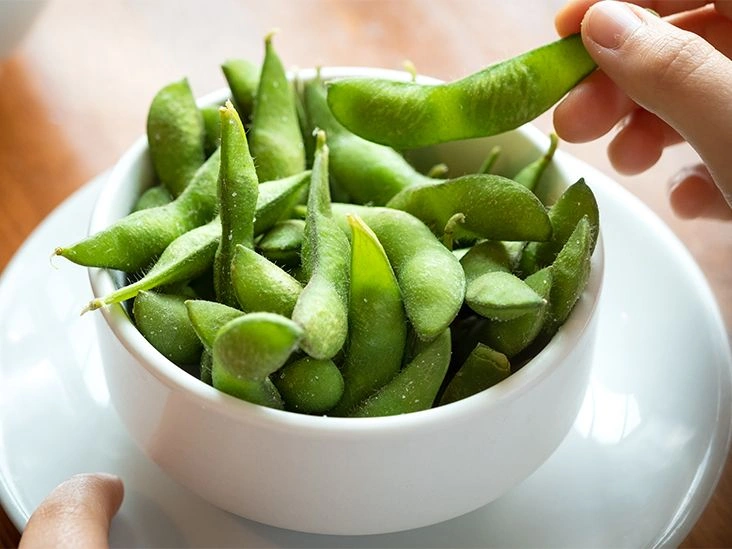
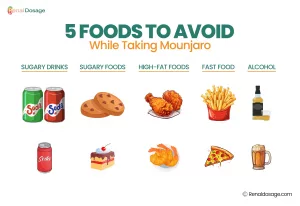
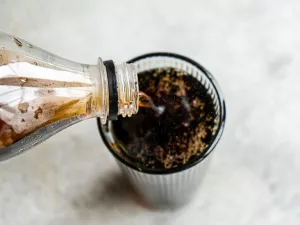
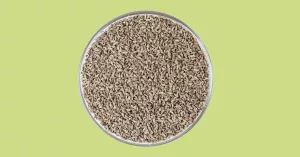

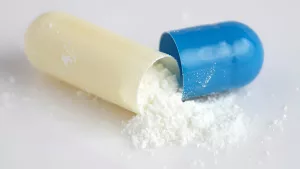
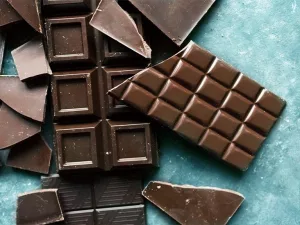

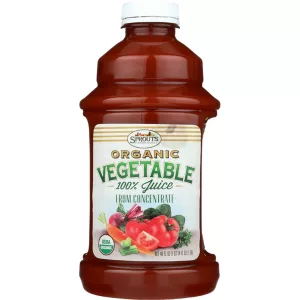







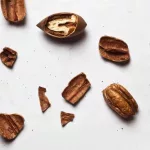
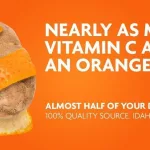





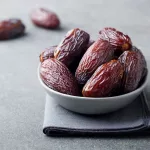
Leave a Reply
You must be logged in to post a comment.